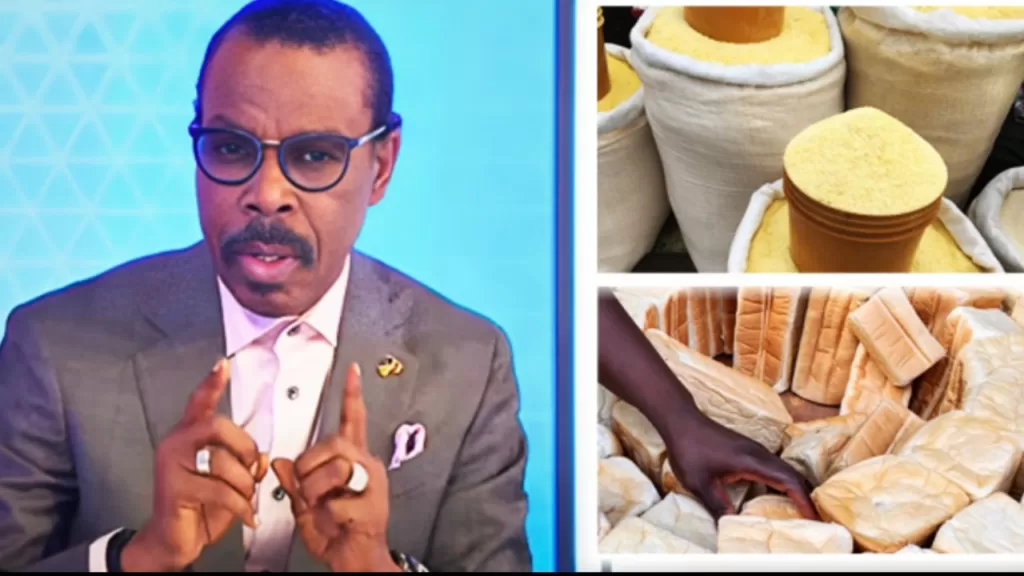Nigerians Uninterested In Budgetary Arithmetic If Bread, Rice Prices Don’t Decrease — Rewane

Economist Bismarck Rewane has warned that if the prices of basic food items such as bread and rice do not decrease, Nigerians may not be interested in the arithmetic projections of the national budget.
He said, “In the end, budgetary arithmetics, budgetary mathematics in economics is of no use to anybody except when by this time, six months’ time, if we are buying rice at N40,000 a bag rather than N60,000 a bag, if we are buying bread N900 a big loaf instead of N1,300 which we are doing today. If we are buying garri at lower prices.
He noted that a majority of Nigerians are struggling to make ends meet due to the high cost of living, and as a result, they may not be interested in the budgetary numbers. Rewane emphasized the importance of taking steps to reduce the prices of basic food items in order to gain the attention and support of the Nigerian people. He also suggested that the government should focus on creating policies that would stimulate economic growth and reduce poverty in the country.
Giving a breakdown of the budget estimates, the President fixed recurrent non-debit expenditure at N9.92trn, capital expenditure at N8.73trn, debt service at N8.25trn, revenue at N18.32trn, new borrowings at N7.83trn and deficit at N9.18trn.

‘Poverty Increasing Mental Health Issues’
Rewane, analysing the budget proposal, said in the final analysis, the people are not interested in figures but want to feel the impact of the government’s economic policies as many are under pressure.
“And as you know, prices are up and people are under tremendous pressure,” he said, adding that the rate of poverty in the country is driving people mad.
“You will notice that on the streets of Lagos in particular, the number of lunatics has increased and part of it is driven by poverty. Many mental health issues. People are pushed to the wall. Some of them walk across the road even in moving traffic.
“People need to feel the impact. the impact is not going to be felt because of 10 or 12% of GDP, that is N27trn; it has to be more. Where is the more going to come from? It’s going to come from investors and investors are going to come here when they are sure that their money is safe and the environment is clean, and they can look forward to a brighter future.”
The economist said the government must be honest with Nigerians on the economic realities, saying that “honesty is in short supply”.
According to him, people cannot start pretending to be happy. “You can fake news but you can’t fake prosperity,” he said.







